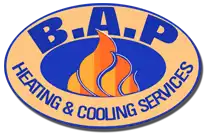Maintaining Air Filters for Optimal HVAC Performance
Your HVAC system works tirelessly to keep your home comfortable throughout the year. It regulates the temperature, removes pollutants, and maintains a proper humidity level within your living space. One of the essential components of your HVAC system is the air filter. Air filters are responsible for trapping particles such as dust, pollen, mold, and pet dander and contribute significantly to the indoor air quality of your home. While their primary function is to protect your HVAC system from these airborne particles, they also impact the overall performance and efficiency of the system.
Given the importance of air filters for your HVAC system’s functionality and indoor air quality, it is crucial to choose the right air filter and establish a regular maintenance schedule. By better understanding the different types of air filters available and their specific benefits, you can make a more informed decision when selecting the best filter for your needs. Additionally, recognizing the importance of routine maintenance, including air filter changeouts and inspection, will ensure that you get the most out of your HVAC investment.
Stay tuned as we discuss the different types of air filters, the importance of maintaining your HVAC system, and the benefits of incorporating a regular maintenance schedule to keep your system operating at peak performance. By investing in proper air filter maintenance, you can enjoy a healthier, more comfortable home while also enhancing the longevity of your HVAC equipment.
Types of Air Filters for HVAC Systems
Various air filters are available for HVAC systems, each with unique characteristics that make them suitable for different applications and preferences. Here are the most common types of air filters:
- Fibreglass Filters: These are the most basic type of air filter, offering a low-cost option for trapping larger particles. However, they are less effective in capturing smaller pollutants, making them less ideal for those with allergy concerns.
- Pleated Filters: Made from polyester or cotton fabrics, pleated filters are more effective in capturing smaller particles and offer an improved efficiency compared to fibreglass filters.
- High-Efficiency Particulate Air (HEPA) Filters: Known for their high filtration capabilities, HEPA filters can capture up to 99.97% of particles as small as 0.3 microns, making them ideal for improving indoor air quality.
- Electrostatic Filters: Utilizing an electrostatic charge to attract particles, these filters offer enhanced filtration capabilities and are available in both disposable and washable variants.
- Activated Carbon Filters: Designed to remove odours and volatile organic compounds (VOCs), activated carbon filters are often used in conjunction with other filter types to provide comprehensive air purification.
The Importance of Regular Air Filter Maintenance
- Enhanced HVAC Efficiency: A clean air filter ensures that your HVAC system operates at peak efficiency, reducing energy consumption and lowering utility costs.
- Improved Indoor Air Quality: Regular air filter changeouts help maintain optimal indoor air quality by effectively trapping allergens, pollutants, and particles.
- Prolonged HVAC Lifespan: Proper air filter maintenance reduces strain on your HVAC system, preventing excessive wear and tear that can lead to costly repairs or replacements.
- Protection Against Mould and Mildew: By effectively trapping excess moisture and particles, a well-maintained air filter helps prevent mould and mildew growth within your HVAC system and home.
Establishing a Maintenance Schedule
- Determine Appropriate Replacement Frequency: The recommended replacement frequency for your air filter depends on the type, your home’s air quality, and any specific needs of your household, such as allergy concerns. Generally, fibreglass filters should be replaced every 30 days, whereas pleated filters can last up to 90 days.
- Perform Regular Inspections: Routinely check your air filter to ensure it remains clean and functions properly, replacing it as necessary.
- Keep Track of Filter Changes: Maintain a record of filter changeouts to help you establish an appropriate replacement schedule for your specific needs.
- Consult Our Professional: Schedule regular HVAC maintenance with our professional, who can ensure that your air filter is functioning optimally and provide guidance on proper maintenance practices.
Warning Signs of a Dirty Air Filter
- Increased Energy Consumption: A sudden spike in your energy bills could be indicative of a dirty air filter, as your HVAC system works harder to maintain desired temperatures.
- Reduced Airflow: If you notice weak airflow from your vents, a clogged air filter could be the culprit, restricting air circulation.
- Uneven Temperature Distribution: A dirty air filter may result in hot or cold zones throughout your home due to restricted airflow and decreased HVAC efficiency.
- Unpleasant Odours: The presence of musty or unpleasant smells within your home could signal the need for an air filter change, as mold and bacteria can accumulate on a dirty filter.
Conclusion:
Proper air filter maintenance, selection, and installation are crucial for maintaining optimal HVAC performance and indoor air quality. By understanding the different types of air filters in Erin and establishing a regular maintenance schedule, you can enjoy a healthier, more comfortable living environment while prolonging the lifespan of your HVAC system. Investing in routine maintenance, including air filter changeouts and inspections, will protect your system and help you get the most out of your HVAC investment.
Contact us at B.A.P. Heating & Cooling Services today to schedule a professional HVAC maintenance appointment or to discuss the ideal air filter solutions for your home. Our experienced technicians will help ensure that your HVAC system remains efficient and provides the best possible indoor air quality for you and your family.







